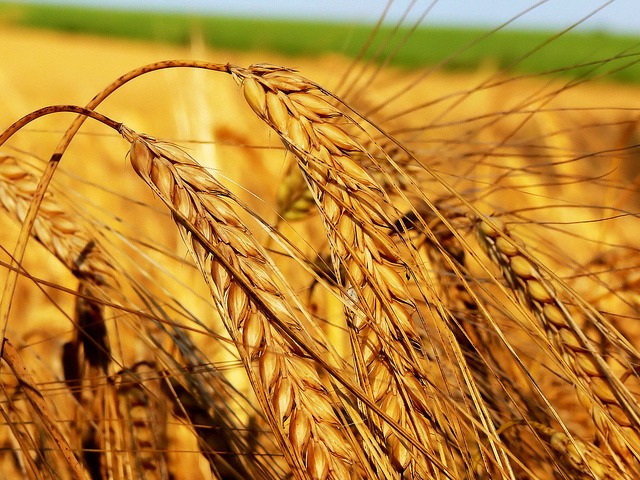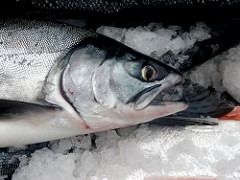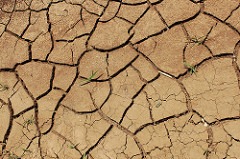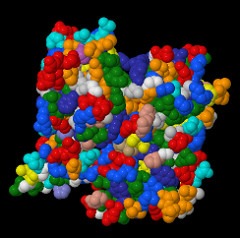
GM/Biotech Crops Report – September 2018
11th September 2018- GM/Biotech Crops Monthly Reports (BELOW) form part of BCPC’s free three-tier Biotech Crops Info service.
- This service also includes a weekly round-up of news from around the globe – see BCPC Newslink GM Crops section.
- Plus – Free access database on over 300 GM/biotech products covering 23 crops in the global market visit BCPC’s GM/Biotech Crops Manual – Register here for free access.
Already registered? Click here
GM/Biotech Crops Monthly Report September 2018
 |
Rothamsted’s camelina to be fed to Scottish farmed salmon |
|---|---|
| Gene map of wheat published to speed development of new varieties The wheat genome is five times larger than the human genome but collaboration between over 200 scientists around the world has now mapped the location of 107,891 genes to begin the development of the yield potential of wheat in a changing climate. Currently a one degree increase in night temperatures at a critical time can reduce yield by 8% and one objective is to build in more resilience. More Pic: Vineet K |
 |
 |
Targeting a Muscular dystrophy treatment Muscular dystrophy is caused by a single error in the DNA of sufferers and this wasting disease affects dogs as well as humans. Now researchers have used CRISPR editing to cut the DNA of dogs with the disease at the error site whereupon natural processes seem to correct the error. Now a study is underway to check the long-term efficacy of this technique on dogs before the treatment is offered to human sufferers: More Pic: Muscular Dystrophy Canada |
| GM rice can neutarlise HIV A vaccine to prevent HIV infection has not yet been developed but the progress of the disease can be slowed by binding the virus to specific proteins. Now a team from the UK, Spain and USA have engineered a rice variety that naturally produces these specific proteins. The rice can be easily made into a cream that is placed on the skin and the necessary protiens enter the body through the skin: More Pic: Kevin Harber |
 |
 |
Rice that needs less water Researchers at Sheffield University have developed a high-yielding rice variety that has a lower density of stomata in the leaves and therefore requires just 60% of the water required by rice with normal stomatal density. This means that it can survive high temperatures and droughty conditions much better than normal varieties: More Pic: RockinRita |
| New CRISPR editing system CRISPR uses the cas9 gene to locate the site of the required cut but apparently some sequences of amino acids are not accessible to Cas9. Now researchers at the University of Texas have found that they can substitute Cas12a for Cas9 and the new system has better ‘reversibility’ than Cas9. More Pic: Michael Chelen |
 |
 |
Hanging by a tread? The Chinese are famed for silkworm farming to produce silk but now a team at the Chinese Academy of Science have edited the silkworm genome to enable it to produce spider silk which is even stronger. The spider silk is required for a variety of uses including making capsules for delivery of drugs to fight cancer and even the manufacture of stronger bullet-proof vests! More Pic: Aditi Basu |
| Suppressing Dengue Fever Dengue fever is transmitted by mosquitoes and now, like the mosquitoes that spread the Zika virus in Brazil, the Indian government has released mosquitoes that have been infected with the Wolbachia bacterium before being released. When these mosquitoes mate with the wild population to spread the bacterium, it is expected to help suppress the transmission of blood-born diseases. More Picf: Katja Schulz |
 |
THE LATEST ADDITIONS TO THE GM/BIOTECH DATABASE ARE:
• GHB811 – cotton with glyphosate and isoxaflutole herbicide tolerance now approved for food use in Japan and for commercial use in America.
• MON15985 – cotton with Lepidopteran insect resistance now approved for food, feed and environment use in Nigeria.
• New stacked event – MON87427 x MON87460 x MON89034 x TC1507 x MON87411 x 59122 – maize with resistance to Lepidopteran and Coleopteran insects and with tolerance of glyphosate and glufosinate approved for food use in Mexico and food & feed use in South Korea.
• TC1507 x 59122 x MON810 x MIR604 x NK603 – maize with resistance to coleopteran and Lepidopteran insects and with tolerance of glyphosate and glufosinate approved for food and feed use in the Philippines and in European Union.
• CTB141175-/01-A – sugarcane with Lepidopteran insect resistance approved for food use in America.
• MON87708 x MON89788 x A5547-127 – soybean with tolerance of glyphosate, glufosinate and dicamba approved for food and feed use in South Africa.
• DHA Canola – oilseed rape with tolerance of glufosinate and modified oil content approved for cultivation in America.
• New stacked event – MON87427 x MON89034 x NK603 – maize with Lepidopteran insect resistance and tolerance of glyphosate approved for food and feed use in the EU, South Korea, Japan and for food use in Mexico. Approval for food use in Taiwan expires 2019.
FOR INSTANT ACCESS TO GM BIOTECH MANUAL CLICK HERE (Registration required)
Already Registered? Click here to access

